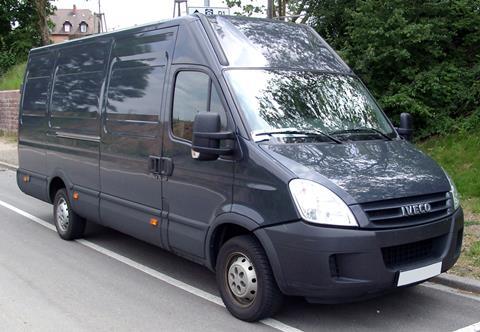
Professional CV drivers have long debated the merits of two pedal operation - but from the fleet manager's point of view it is a no-brainer surely?
Clutches last forever and the worst abuses of over-revving should be all-but eliminated if the auto box is in proper economy mode.
So it was interesting to have a drive in a 2012 Iveco Daily at the weekend, courtesy of those lovely people in the Iveco press garage based at Northern Commercials in Dunstable.
The Daily cab is a pleasant place for a driver these days, with a comfy seat and loads of cubby holes for those everyday nicknacks. But the six-speed autobox seemed to have very different ideas about when to change up from this driver, who uses an old Skoda Octavia SDI for day to day transport. This old bus is usually more than happy with upshifts at around 2,000 rpm - OK progress is less than rapid but hey with diesel at £1.35 a litre these days economy matters more than speed.
So I was intrigued to see the Daily wanting to hang on to gears - especially first - til around 3,000 rpm - the very end of the green band - before shifting up when in auto mode. This was despite being empty or lightly loaded for most of our time together.
Even switching to manual had limited effect - the gearbox refused repeated requests to shift from first to second at 2,500 rpm, waiting til the revs rose close to 3,000 before making the change. Is this because there is quite a gap between first and second, and the brains behind the box want to ensure the revs do not drop out of the green band which starts at 1,500 rpm? Is it in fact more efficient to rev a bit harder in the lower gears? The box seemed happier shifting earlier in the higher gears, though once or twice a request for a change up at 2,000 rpm was politely ignored.
And finally, is it me or is it not logical to shift up with a forward push on the gear knob rather than a drag back? I must confess to shifting down rather than up a couple of times early on in the drive - though as I was asking for changes at 2,000 rpm at this point no mechanical parts were harmed in the process.











